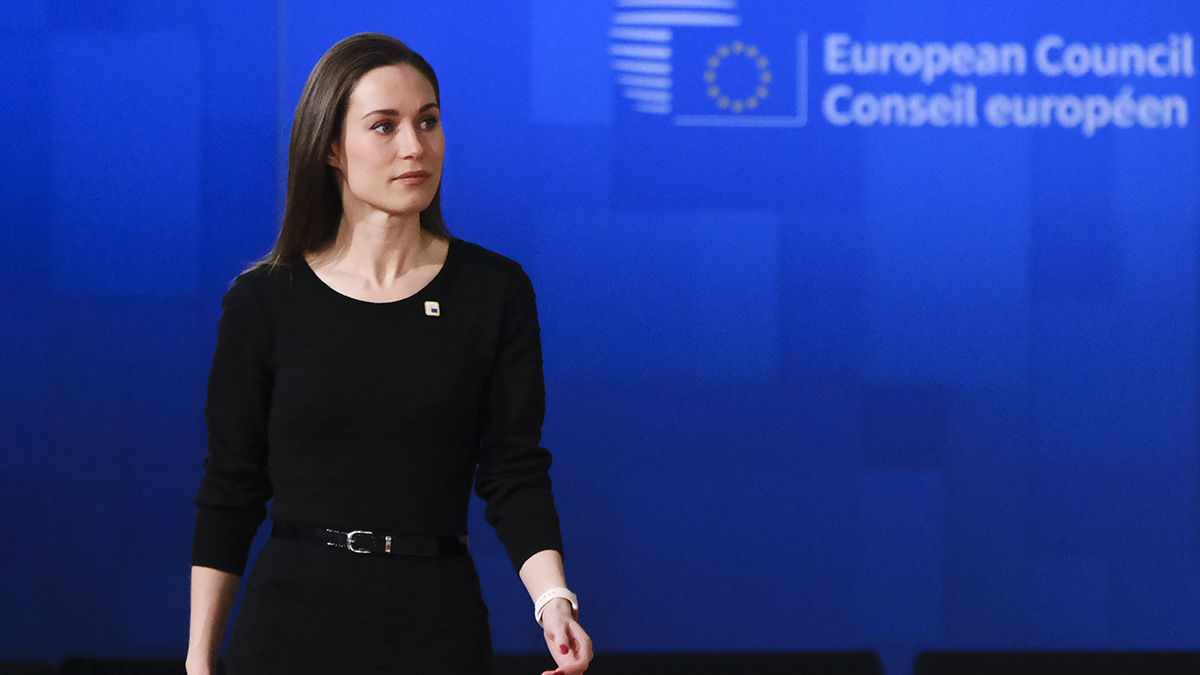European Council reaffirms support for Ukraine and discusses transatlantic relations

In its meeting on 15 December, the European Council discussed transatlantic relations, energy and the economy, Ukraine and Russia, security and defence, and the Southern Neighbourhood.
In the discussions, Prime Minister Sanna Marin stressed the need for the EU to continue its strong support for Ukraine in all its forms.
“It is important that we urgently assist Ukraine in repairing its infrastructure as Russia continues its attacks on civilian targets. I am pleased that we confirmed the decision that the EU will provide EUR 18 billion in macro-financial assistance to Ukraine in 2023.”
On 9 November, the European Commission proposed a macro-financial assistance package that would set up a new instrument to channel a maximum of EUR 18 billion in support to Ukraine (the MFA+ instrument) in 2023.
The European Council also agreed on the EU’s ninth package of sanctions against Russia. Finland has stressed that the EU must consistently ramp up sanctions against Russia as its aggression continues.
In the discussion on transatlantic relations, the economy and energy, Prime Minister Marin emphasised the positive transatlantic agenda and the role of cohesion and consistency in the EU in strengthening transatlantic relations.
“The EU must continue its close cooperation and dialogue with the United States on Russia and China, for example, and on security and defence,” Marin said.
“Our trade and investment relationship is the most significant in the world. It is important that the EU and the United States find solutions to the EU’s concerns about ensuring a level playing field.”
The Prime Minister emphasised that she shares the concern expressed in the European Council’s discussions about the EU’s competitiveness and the deteriorating economic situation in Europe. Prime Minister Marin stated that despite the crisis, Finland does not support large-scale EU-level investment packages or instruments.
The European Council invited the Commission to analyse the situation and to make proposals at the beginning of next year for EU-level measures to improve Europe’s global competitiveness and productivity over the long term.
Marin stressed that measures to ensure the competitiveness of the EU require careful consideration.
“We will return to this topic at the next European Council, where we need to hold a thorough debate on Europe’s competitiveness and critical dependencies.”
In other matters, the European Council decided to grant the status of candidate country to Bosnia and Herzegovina. The Council’s discussion with the President of the European Parliament addressed the allegations of corruption in the Parliament.
Inquiries: Jari Luoto, Director General, EU Affairs Department, tel. +358 50 468 5949, Saara Pokki, Special Adviser (EU Affairs), tel. +358 50 478 6363 and Rami Kurth, Communications Specialist (EU Affairs), tel. +358 50 465 7963, Prime Minister’s Office